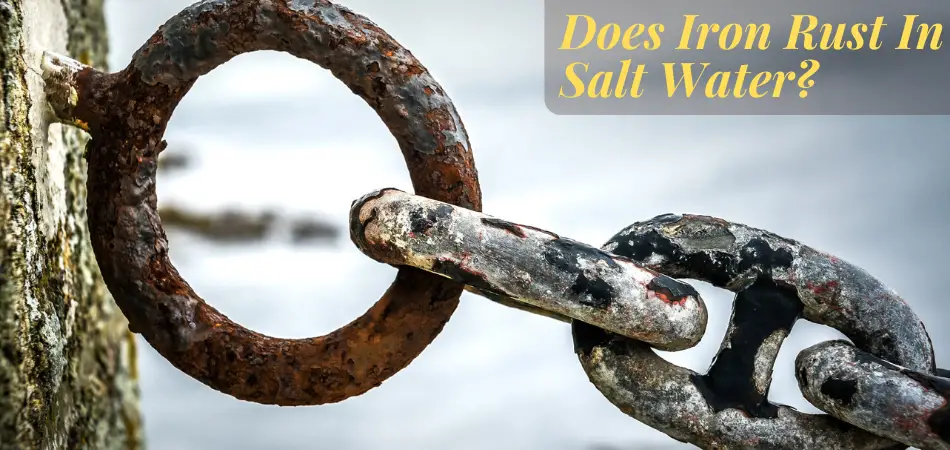Saltwater is an electrolyte that can cause iron to rust. Iron tends to form rust quicker in salt water than it does in freshwater because the salt causes a chemical reaction that speeds up the process. Iron has a greater chance of rusting than non-reactive metals. For more answers on the question does iron rust in saltwater? read further!
Yes, iron rusts in saltwater. Saltwater is an electrolyte solution and contains more dissolved ions than freshwater. Due to this, electrons can move more easily in it.
Furthermore, moisture, especially water content, is a trigger for rust. Exposing iron to water will enable the moisture present in the iron to react with the oxygen present in the atmosphere. This process results in oxidation and then leads to rust, a common name for iron oxide. Rust is the flaky red or yellowish-brown peel-off we see on metals.
This article gives more information on how and why salt solution speeds up the rusting process of iron, how long it takes iron metal to rust in saltwater, and how to prevent iron from rusting
Contents
Why Does Salt Solution Speed Up The Rusting Process Of Iron?
Salt speeds up the rusting process of iron because it serves as an electrolyte. An electrolyte contains more dissolved irons and gives electrons the avenue to move faster in it.
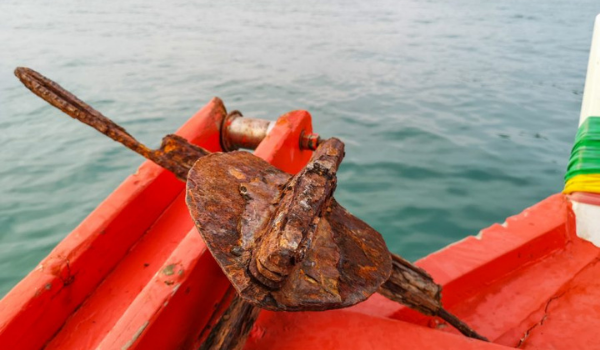
The rusting process of iron cannot take place without the movement of ions, iron has to be able to give off ions before it can rust. The slower it gives off ions, the slower it rusts and the faster the iron gives off ions, the faster it rusts.
When Iron comes in contact with a salt solution, its ions begin to move faster and the iron gives them off faster. As a result, iron begins to rust much more than it would in an ordinary environment.
Will Raw Undissolved Salt Still Rust Iron?
Yes, it will. This is because salt on it’s own is a very powerful electrolyte and contains a large amount of dissociated ions, which to a very large extent, accelerates rust.
Salt in particular can hasten the rusting process of iron by allowing the iron to lose electrons more quickly and easily. Therefore, the quicker an iron metal is able to lose its ions, the quicker rust takes place.
Which Enhances The Rusting Process More; Salt Air or Salt Water?
None. What is more important is oxygen. Rust is majorly oxidation, or a chemical reaction that involves oxygen. When oxidation takes place in some elements, a very thin film is formed as a result, for example the green layers you can find on copper. Other elements such as iron show rust as its own proof of oxidation.
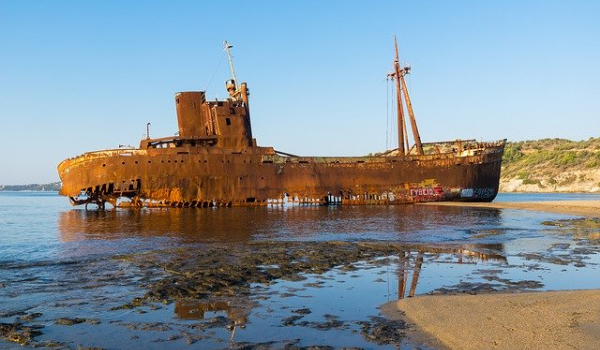
If iron or any metal containing iron is exposed to any environment that is rich in oxygen and catalyst friendly, then the process of oxidation begins.
The iron molecules on the surface of the metal object will exchange it’s atoms with the oxygen present in air and the atoms left will form a new substance often reddish or brownish, which we know as rust.
Air is not always important for rust to occur, only oxygen is and oxygen can be found in water also. Water is in fact important for the oxidation process because it is what allows the iron to meet with the oxygen. This is the reason more moisturized areas have rusty metals than dry areas.
How Long Does It Take Iron Metal To Rust In Salt Water?
The time taken for iron to rust in salt water depends on the amount of dissolved oxygen present in it. Iron forms a combination with oxygen to produce rust, which is the compound known as iron oxide. The time taken for a piece of metal material to rust in any type of water depends on the amount of oxygen dissolved in the water.
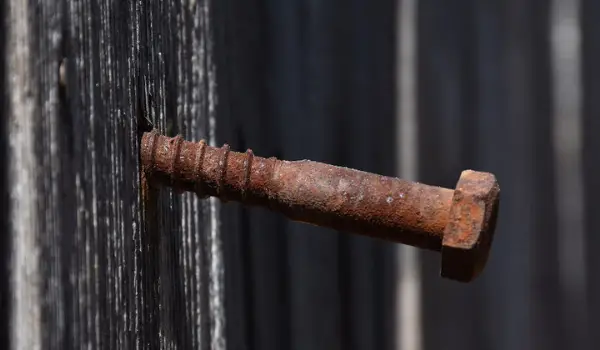
For example, the warmer a lake or seawater is, the less dissolved amount of oxygen is present in the water, hence, rusting an iron material in a lakewater will take a slower process. If a piece of iron sinks deep into the bottom silt of a natural body of water, it is in an oxygen free environment, hence, it might undergo other processes but it won’t rust.
This means that no matter the amount of salt dissolved in water, oxygen is still needed for rust to occur. Salt might help a metal material lose its ions faster but oxygen is still needed for a reaction to take place.
How Do You Prevent Iron From Rusting?
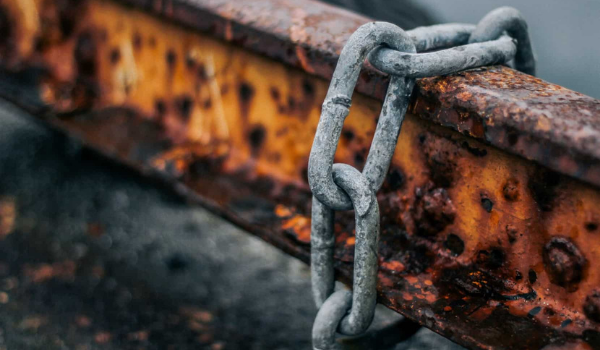
By Creating A Barrier
You can prevent iron from rusting by creating a barrier between the metal surface and the moisture present in the environment with paint, thus taking away the opportunity for both oxygen and moisture to come in contact with the metal.
Anodization
This is a form of surface treatment that protects iron against corrosion. The iron is bathed in a specific substance and electrochemical conditions are adjusted in such a way that wide uniform pores appear in the film of the metal’s oxide. These pores allow an oxide film to build up. The result is a protective layer that is very hard and resilient.
Cathodic protection
This is another major way to protect against corrosion of iron. Cathodic protection can be carried out by conferring a continuous negative electrical charge on the metal. This replicates the effect of galvanization but with a more active metal. The source of negative charge is mostly from the power supply of a direct current. This form of protection is majorly used for underground fuel tanks and pipelines, including other things.

